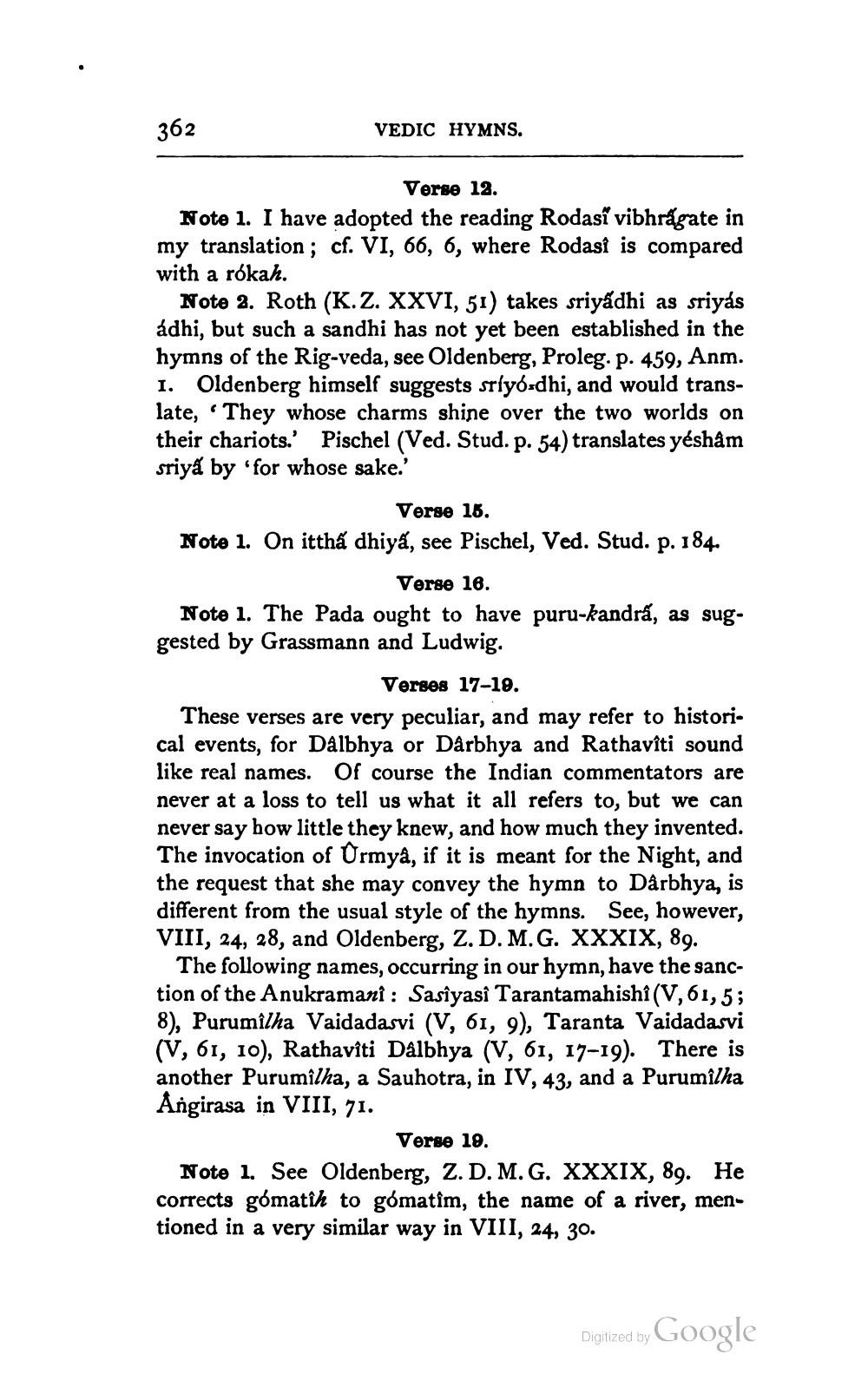________________
362
VEDIC HYMNS.
Verse 12. Note 1. I have adopted the reading Rodasî vibhrágate in my translation; cf. VI, 66, 6, where Rodasi is compared with a rókah.
Note 2. Roth (K. Z. XXVI, 51) takes sriyâdhi as sriyas ádhi, but such a sandhi has not yet been established in the hymns of the Rig-veda, see Oldenberg, Proleg. p. 459, Anm. 1. Oldenberg himself suggests srlyósdhi, and would translate, ‘They whose charms shine over the two worlds on their chariots.' Pischel (Ved. Stud. p. 54) translates yéshâm sriya by 'for whose sake.'
Verse 16. Note 1. On itthá dhiya, see Pischel, Ved. Stud. p. 184.
Verse 16. Note 1. The Pada ought to have puru-kandra, as suggested by Grassmann and Ludwig.
Verses 17-18. These verses are very peculiar, and may refer to historical events, for Dalbhya or Darbhya and Rathavîti sound like real names. Of course the Indian commentators are never at a loss to tell us what it all refers to, but we can never say how little they knew, and how much they invented. The invocation of Urmyå, if it is meant for the Night, and the request that she may convey the hymn to Darbhya, is different from the usual style of the hymns. See, however, VIII, 24, 28, and Oldenberg, Z.D.M.G. XXXIX, 89.
The following names, occurring in our hymn, have the sanction of the Anukramani : Sasîyasî Tarantamahishi (V,61,5; 8), Purumilha Vaidadasvi (V, 61, 9), Taranta Vaidadasvi (V, 61, 10), Rathaviti Dalbhya (V, 61, 17-19). There is another Purumilha, a Sauhotra, in IV, 43, and a Purumilha Angirasa in VIII, 71.
Verse 19. Note 1. See Oldenberg, Z. D. M.G. XXXIX, 89. He corrects gómatih to gómatîm, the name of a river, mentioned in a very similar way in VIII, 24, 30.
Digitized by
Digilzed by Google




